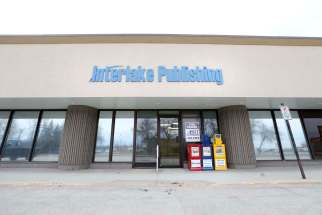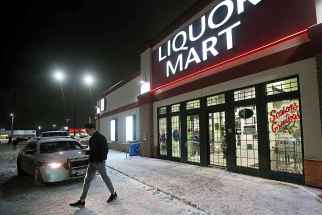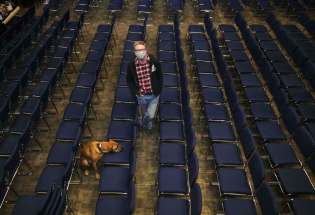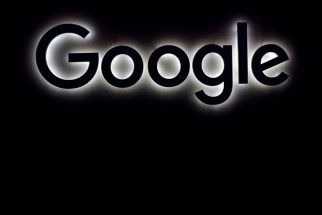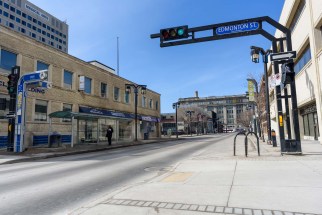The song is over, for now City's silent music venues wondering when, or if, they'll reopen
Read this article for free:
or
Already have an account? Log in here »
To continue reading, please subscribe:
Monthly Digital Subscription
$0 for the first 4 weeks*
- Enjoy unlimited reading on winnipegfreepress.com
- Read the E-Edition, our digital replica newspaper
- Access News Break, our award-winning app
- Play interactive puzzles
*No charge for 4 weeks then price increases to the regular rate of $19.00 plus GST every four weeks. Offer available to new and qualified returning subscribers only. Cancel any time.
Monthly Digital Subscription
$4.75/week*
- Enjoy unlimited reading on winnipegfreepress.com
- Read the E-Edition, our digital replica newspaper
- Access News Break, our award-winning app
- Play interactive puzzles
*Billed as $19 plus GST every four weeks. Cancel any time.
To continue reading, please subscribe:
Add Free Press access to your Brandon Sun subscription for only an additional
$1 for the first 4 weeks*
*Your next subscription payment will increase by $1.00 and you will be charged $16.99 plus GST for four weeks. After four weeks, your payment will increase to $23.99 plus GST every four weeks.
Read unlimited articles for free today:
or
Already have an account? Log in here »
Hey there, time traveller!
This article was published 28/04/2020 (2052 days ago), so information in it may no longer be current.
As the COVID-19 pandemic began to sweep across North America, businesses of all stripes were forced to close their doors, hoping it would be temporary.
Live music venues can be precarious places to run at the best of times, but they occupy a unique space in this fraught landscape. They were, as a passionate plea to congressional leadership on behalf of 800 independent venues in the United States points out, among the first businesses to close amid the pandemic, and are most likely to be among the last to reopen.
That was confirmed Tuesday, when Premier Brian Pallister said events that draw crowds, such as concerts and sports games, won’t be returning anytime soon.
“I think the reality is, a big congregation of a lot of people is a danger to everybody there, and a danger to all of us,” he said at a news conference. “So, those are things that are very likely going to be at the back of the pack when it comes to reopening.”
If they can reopen at all.
These rooms, integral to the identity of our cities, exist for people to gather and share in the same, one-night-only experience, an experience that can’t be packaged in a box for delivery via an app.
Independent music venues are important economic and cultural drivers. They are the rooms in which musicians become great.
To do and be all those things, though, they need to be open.
That’s the reality for Winnipeg’s venues, too. Here, the managers and owners of five of our city’s live music haunts discuss a stressful present and an uncertain future.
The Good Will Social Club
Adrenaline can only carry you so far. After David Schellenberg, the talent buyer and one of the co-owners of the Good Will Social Club, and his partners made the decision to close — “It was not a difficult decision for us: we’re the Good Will Social Club, after all,” he says — it was a flurry of logistics: returning kegs and bottles, calling suppliers, cancelling events.
Schellenberg was personally self-quarantined for two weeks after a trip to New York City that ended up lasting all of 14 hours.
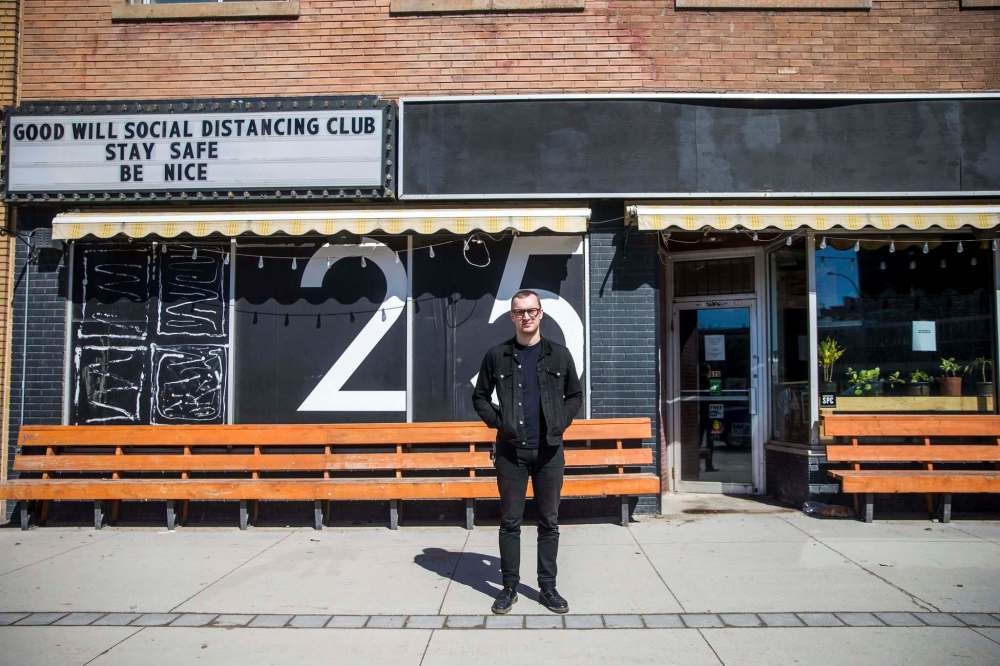
When the dust settled, the worries crept in. “We got really worried about paying the rent, and all the bills, and heating and cooling a 7,000-square-foot room in a 100-year-old building,” Schellenberg says.
“We were prepping for it to be over for us, just to be frank.”
In mid-April, Tyler Sneesby, one of the other co-owners, did a CBC radio interview in which he spoke frankly about the club hanging on by a wing and a prayer. Schellenberg says all their phones started blowing up with messages from people asking variations of the same question: “How can we help?”; “What can we do?”
The Good Will Social Club decided to go the GoFundMe route. Their goal was to raise $45,000, which would be used to cover half of April, May and June’s rent — in the hopes that the federal commercial rent relief program can cover the other 50 per cent — as well as rent for July, August and September. Monthly rent is just shy of $10,000. The Good Will is also in the process of applying for a $40,000 Canadian Emergency Business Account (CEBA) loan to cover utilities.
“To be honest, I was extremely skeptical that we’d even make any money at all,” Schellenberg says.
The club met its goal on the crowdsourced fundraising site in a matter of hours, and ended up raising just shy of $60,000.
“I just cried,” Schellenberg says. “I refreshed the page and just cried. How lucky and how fortunate are we. Because we didn’t know. There are so many causes for people to give to. I can’t even express how much it meant to all of us. We break even every month, if we’re lucky.
“It puts some gas in the tank for a bunch of folks who thought this would be it.”
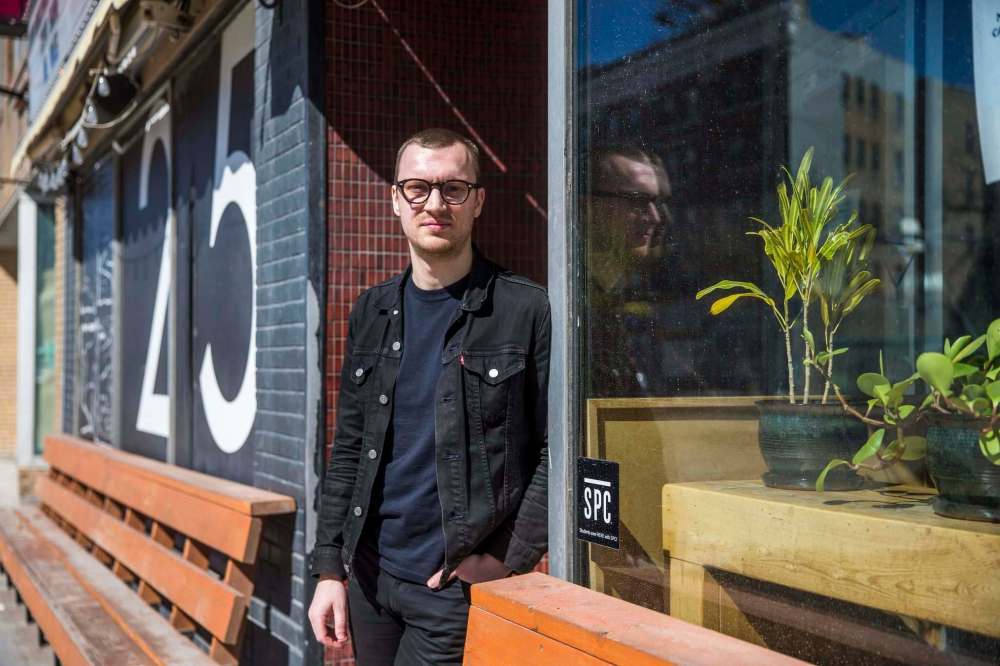
While he’s thankful for the breathing room now, Schellenberg said the road to reopening will be bumpy, especially if some kind of social-distancing measures remain in place. Also, even if venues do get an all clear, it will likely take time for people to feel comfortable attending shows again.
“I’m extremely concerned,” he says. “We have a capacity of 200, and with the patio, it’s an additional 64 people. I can’t see us operating at full capacity until… honestly, I can’t see it happening until 2022. I see us operating at maybe 50 per cent once venues are back to ‘normal.’
“But it’s going to be a whole new world. I don’t know if people are going to want to attend shows and concerts. Businesses that are more so watering holes and hangouts — that will be the culture that comes back first. Live music will really be the last thing to come back.”
The Pyramid and the Albert
The timing couldn’t have been worse for Dave McKeigan.
As the manager of the Pyramid Cabaret and, as of November 2019, the Royal Albert Arms, McKeigan was looking forward to what was supposed to be the busiest spring touring season he’d seen in a while.
“I was the most optimistic I had been in about three years,” he says. “There was a big blend of music between bands and DJs, socials, rentals, festival events, touring bands, local bands, CD releases. There was a little bit of everything, and it just seemed like the momentum was steamrolling. We put a lot of time and work in, which makes it extra sad.
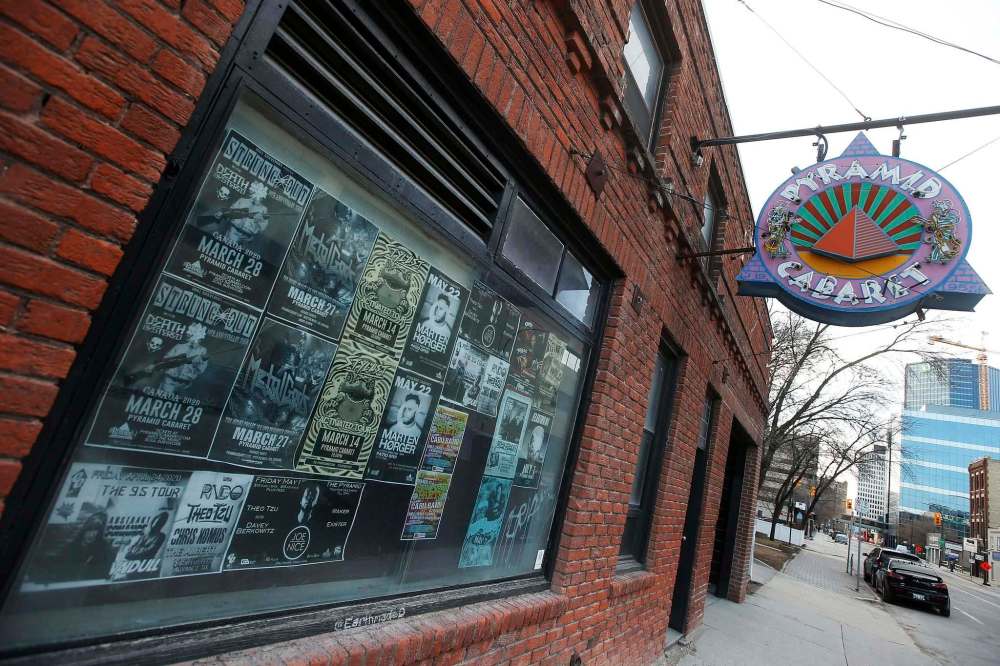
“You go from optimism and excitement about starting a new business, to shut, no business, no momentum, and bills.”
Both venues closed on March 15, and now it’s wait-and-see. McKeigan had poured a lot of resources into the the Albert — “fixing the place up, giving it a new look and a new PA system and rugs and a total paint job” — and was also eyeing a new roof for the Pyramid, as well as an expansion of the patio.
He points out that while January and February are historically slow in this business, spring touring is the season that pays the bills.
“We have no income. There’s not a nickel coming in and bills are adding up because in the end you still have to heat the place, you still have to go in and maintain things.”–Dave McKeigan
“We have no income. There’s not a nickel coming in and bills are adding up because in the end you still have to heat the place, you still have to go in and maintain things. Even simple things like beer on tap. It’s not going to last forever. We take it off, but it’s still in a container half full, so that’s probably going to go to waste.”
McKeigan is hesitant about applying for a CEBA loan for the Pyramid — “remember, it’s a loan” — but believes it’s a good program that can help take care of immediate problems. As for the Albert, “it’s an example of a place that’s totally fallen through the cracks” because it was only open for a few months. McKeigan says he’s brainstorming fundraising ideas for the venues.
“We have everything against us as a business. There are other businesses that are open and are doing a good job, and more will open and it’ll be one step at a time. But even if we were allowed to open tomorrow, it’s not like a bunch of bands or DJs are going to fly into town.”
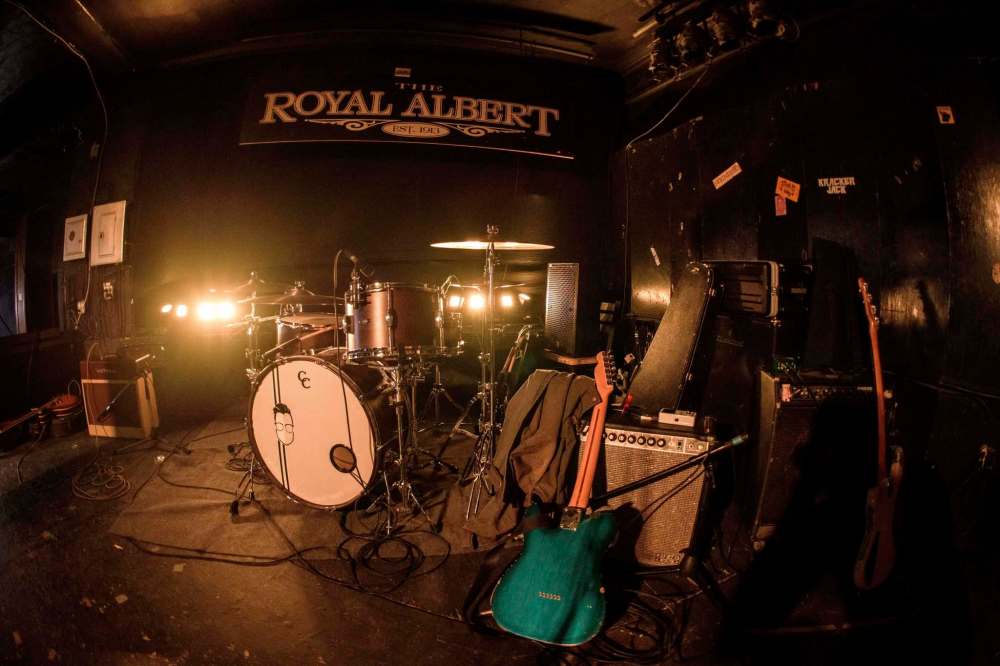
He hopes that everyone on the touring circuit, from bands, to promoters, to venue managers, will work together and be flexible when it comes to matters of capacity and, therefore, ticket revenue. The reality may be that places that could previously bring in 300 people may only be able to do half that.
“They got to get out and play, and we got to get back to normal — but it’s gotta be safe as well,” he says.
For now, he’s watching and waiting to see what other cities do. “There will be a whole world of templates that anyone can read.”
The Park Theatre
This past Monday was a grim anniversary for the Park Theatre: six weeks since the venue closed voluntarily.
“Honestly, it’s been tough,” says owner Erick Casselman. “We’re at 111 events now that we’ve had to move or cancel. We’ve had to refund over $8,000 in tickets. Not only are you losing that revenue that was coming in, but you’re refunding a lot of deposits and tickets.”
Casselman didn’t waste time, securing a line of credit on his house and looking at what money was available to him, including the $40,000 CEBA loan, $30,000 of which he must pay back by December 31, 2022. He’s also paying a significant mortgage that he doesn’t want to defer.
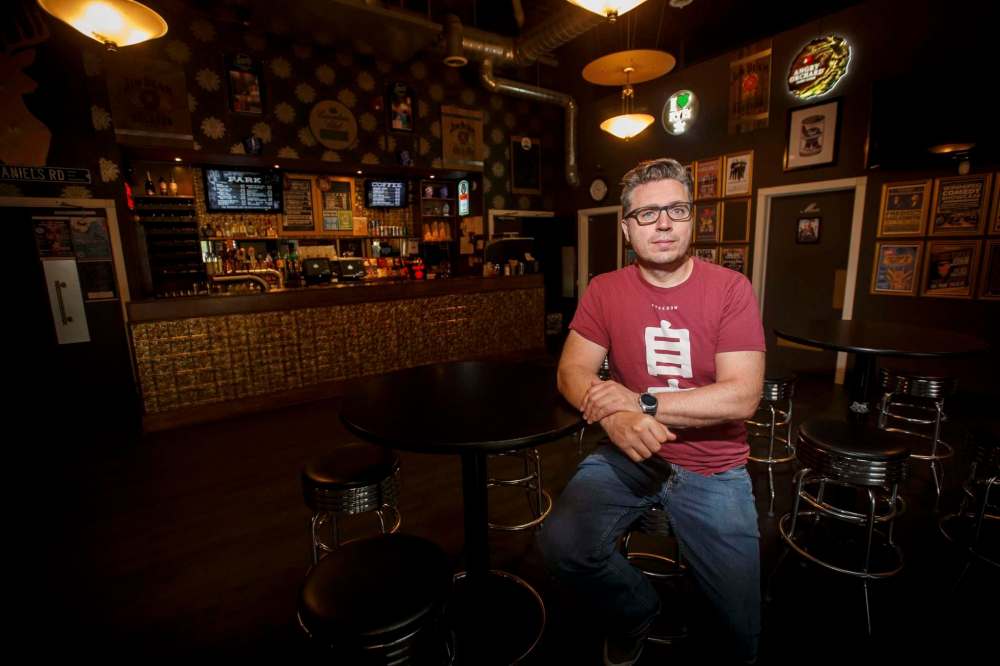
“I started putting things in place for a long-term pandemic plan, if you will. I was proactive and didn’t just sit back that first week. But if this goes on — some people are saying September, maybe this year, but as far away as 2021 — I don’t know, honestly, what we’ll do.”
He also has no idea what the new normal might look like.
“What will be the constraints? Will we go back to full capacity or will they say a 50-person cap? And will people want to put themselves at risk? You get back to normal too quickly, and then what happens?” He says that the Park will play things on extremely cautious side. “Consciously, I can’t allow us to be part of the problem. But it’s honestly going to be really tough.”
And then there’s the matter of his staff, whom he had to lay off. “They’re like family, so I don’t want to put them at risk — but then I feel bad because they’re not working. And even though there is the emergency fund, it’s not comparable to what they’d be making working plus tips, etc.”
“(Staff) are like family, so I don’t want to put them at risk — but then I feel bad because they’re not working.”–Erick Casselman
Meantime, those who want to support the Park can purchase gift certificates to use in the future, whenever that will be. Casselman says he’s taking things month by month.
“I put everything I have into this place. I fell in love with the building, I fell in love with what we were doing. If we were playing poker, all my chips are in this pot right now. Now, it’s just a wait and see, and hope for the best.”
Times Change(d) High and Lonesome Club
John Scoles has a theory: “When things aren’t going the way you want, that’s when you have to dig in and celebrate the things you value the most.”
In The Time Before, that might have meant making a point of reminding people how awesome a blues musician Big Dave McLean is if business is slow on Sunday nights. Now, it means remembering what he’s investing in. It’s not just a business. It’s people.
“When this happened, I decided to continually remind myself that I am the biggest investor in my business,” says the club’s owner, president (and janitor). “When things aren’t going well, I put money in. When things are going well, I don’t take so much money out.
“I’ve spent my whole career in this business preparing for the day when I wouldn’t be able to do it and people would still need it. So, in this case, that’s where I’m at.”
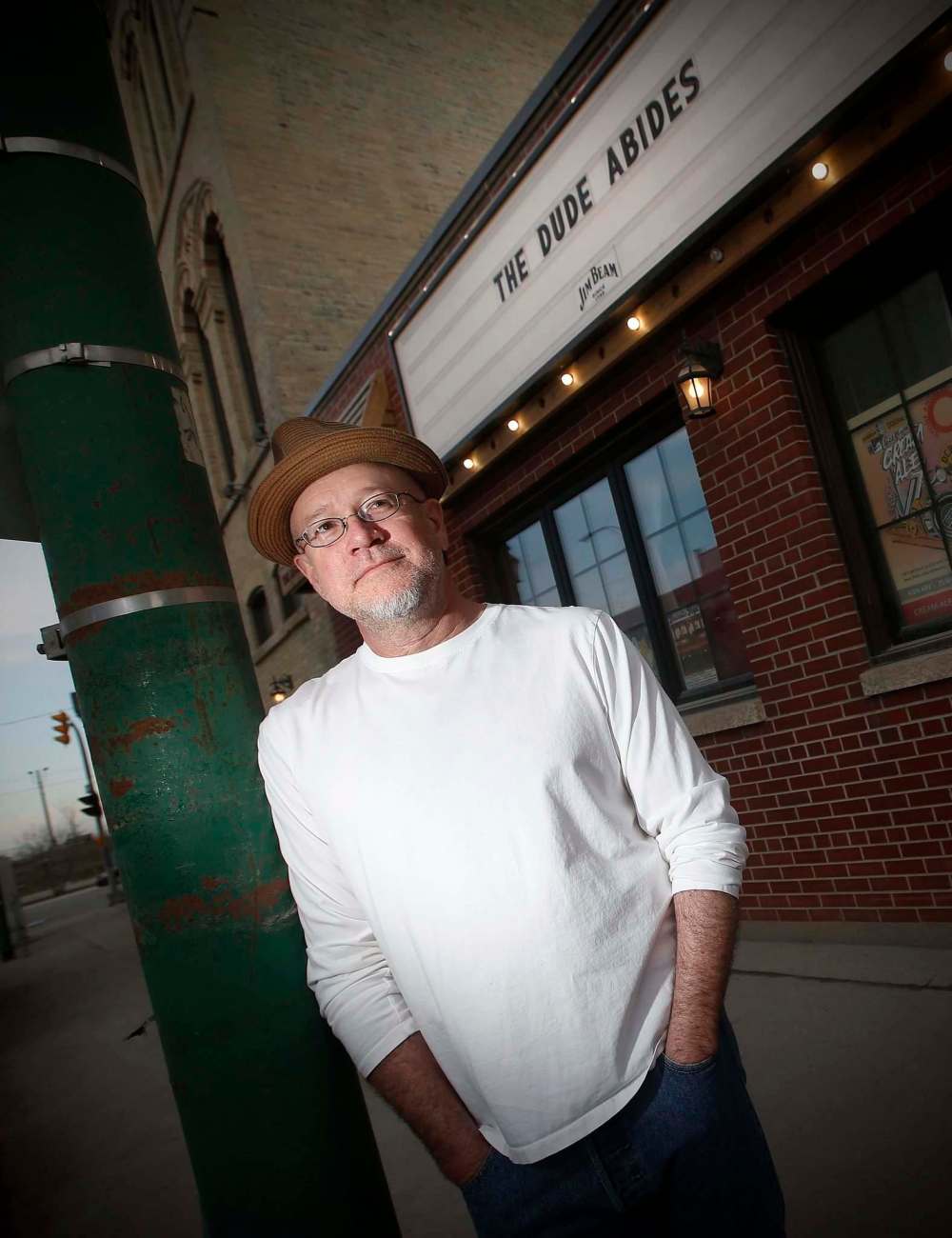
Scoles is thankful for the relationship he has with his landlord, businessman John Pollard, who purchased the Fortune Block — the heritage building that houses the club — and restored it to its former glory. Times Change(d), too, got some TLC in the process, but is still recognizable as the little Main Street honky-tonk the city knows and loves.
“I probably have one of the best landlords of any music venue, probably in the history of the universe,” Scoles says with a laugh. “It takes the concern off a bit, although I did pay my full rent out of savings last month, and I intend to continue to pay my rent out of savings and the CEBA loan, and maybe we’ll get some rent relief here.
“My feeling is good landlords shouldn’t be the ones who suffer in all this. I have a lot of misgivings about people giving money to bad landlords when rent relief is on the horizon. But that’s another story.”
Scoles says he’s only looking about three weeks into the future.
“I think, by May, we’re going to have a lot more information about how things will move forward in the easing of restrictions. That doesn’t mean we’ll be any closer; I have a hard time imagining that any live music is up and running to any extent until fall.
“From a personal perspective, when I see friends who work so hard to put on festivals in the summer, already making decisions to cancel and how agonizing that must be, part of my investment is people and people’s feelings and solidarity. I wouldn’t feel very good about trying to open my business when I know those people couldn’t open theirs.”
“Bars don’t need your help. People need your help.”–John Scoles
As for those who want to continue to support the Times Change(d), Scoles has another idea: “Help somebody who you never thought you’d help before,” he says.
“Bars don’t need your help. People need your help. People who are homeless, or poverty-stricken, or little businesses that no one thinks about. I would like to say, ‘Oh, there’s lots of ways to support your local favourite business,’ but maybe support the business you don’t even think about.”
jen.zoratti@freepress.mb.ca
Twitter: @JenZoratti
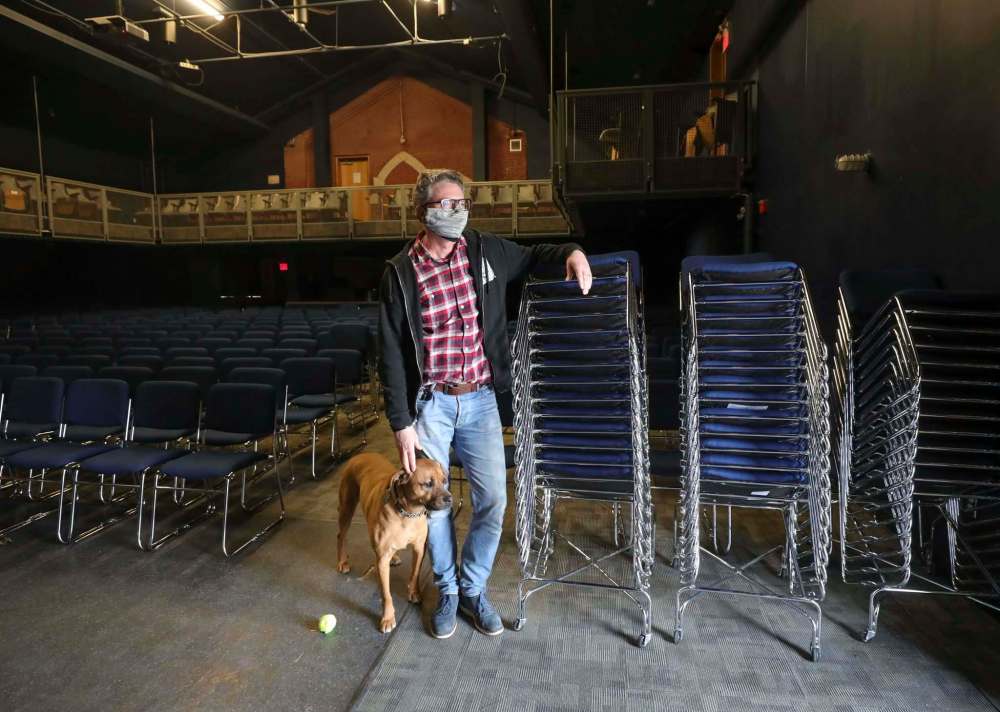
We’ll be back: West End Cultural Centre
The events calendar on the West End Cultural Centre’s website is a sweet ’n’ sour combo plate of despair and hope.
Scheduled upcoming acts for May, such as Ron Sexsmith and Basia Bulat, are all reading as “postponed,” while French-Algerian musician Pierre Bensusan’s May 7 gig is cancelled altogether, gone the way of the free monthly ukulele workshops at the former church on the corner of Ellice and Sherbrook.
But look more closely and you see postponed acts Sexsmith and Bulat are rescheduled to November. WECC executive director Jason Hooper acknowledges that estimate may be overly hopeful.
“Some of the things that I’ve been reading about are projecting possibly autumn 2021 or even autumn 2022 where events can be held again,” Hooper says.
As a not-for profit, charitable venue, WECC is not in the same situation as the private venues that have been obliged to aggressively ramp up their fundraising, although Hooper says he is impressed by the generous response to the Good Will’s recent GoFundMe campaign. “That was just amazing to see. I’m very pleased for them and happy for that success.”
Hooper says the WECC is considering its own fundraising efforts to keep the organization going.
“Currently, we’re working on a potential livestream concert,” he says. “We have definitely seen the appetite for it, but have been disappointed with some of the quality. So we’re really looking at a high-quality broadcast and performance with a gate — a modest box office of maybe $2 to tune in — so that we can continue having performances and supporting artists and bringing concerts to people, but doing so in a safe and responsible manner.
“I think (broadcast concerts) have the potential to continue to exist after social distancing measures have been relaxed,” he says. “We do have artists that are interested. Right now, we’re just trying to raise the funds to make sure that we can do it properly and with high-quality professional broadcast.”
He says the money would be required to invest in cameras and infrastucture to go from a live-in-person performance to a live broadcast.
Hooper says the centre’s staff has been reduced to himself and booking co-ordinator Jorge Requena Ramos, but he has time to apply for funding through the usual government channels.
“Those things are just short term,” he says. “We will definitely be needing something more long-term. A $40,000 in a wage subsidy just won’t get us that far.
“I think at this point, we’ll be looking largely to the federal government and probably to our patrons and audience,” Hooper says. “We’ve had a couple of people step in a really big way, which is really great to see. It lets me know just how much the West End Cultural Centre means to a lot of people.
“But at the moment, there are no plans for a campaign. I think it’s something we’ll be looking at eventually.”
Hooper asserts that safety for WECC’s loyal patrons remains paramount.
“I wouldn’t want to open it too soon,” he says. “We will definitely be here after the coronavirus. But we’re going to be very careful about when to reopen. I’m concerned there’s an eagerness to do that throughout not just the industry but society, to get back to normal.
“And I would hate to see that happen too soon and have to do this all again perhaps even in a worse kind of scenario, where we have a second outbreak.”
— Randall King

Jen Zoratti is a Winnipeg Free Press columnist and author of the newsletter, NEXT, a weekly look towards a post-pandemic future.
Our newsroom depends on a growing audience of readers to power our journalism. If you are not a paid reader, please consider becoming a subscriber.
Our newsroom depends on its audience of readers to power our journalism. Thank you for your support.
History
Updated on Thursday, April 30, 2020 9:07 AM CDT: Fixes typos


